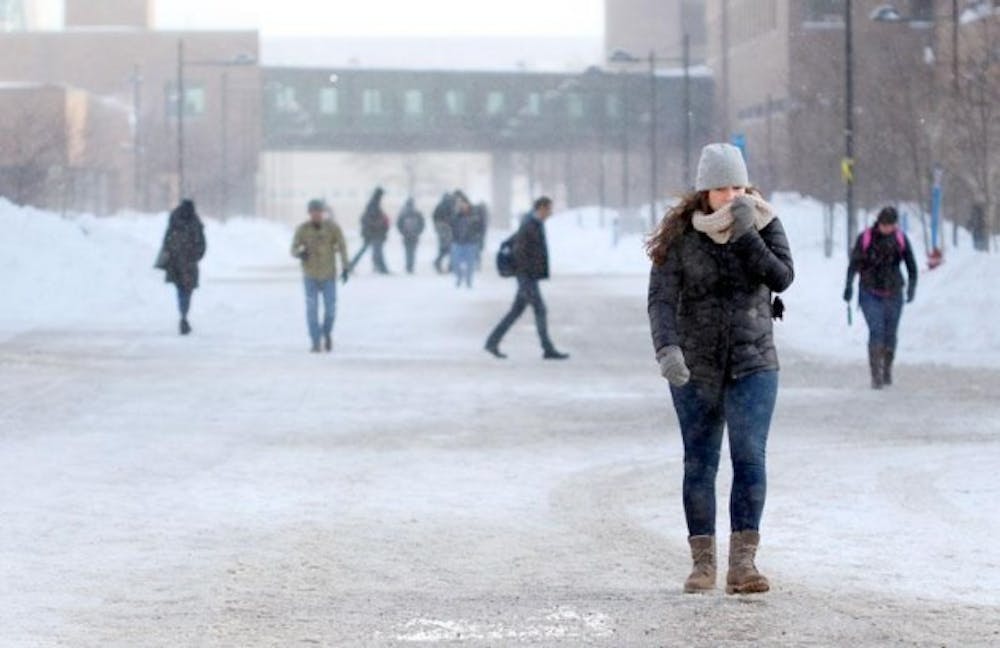Aniruh Ojha says wintertime blues plague him. An international business student from New Delhi, India, he has struggled through Buffalo's long snowy season, and the cold weather has negatively impacted his mood.
Buffalo's long winters can bring a host of seasonal problems. Getting sick, slippery roads and blustery struggles through seemingly endless piles of snow are all common problems in the chilly season. But winter can also cause a less-publicized problem: Seasonal Affective Disorder (S.A.D.).
"Seasonal affective disorder is not a diagnosis that stands on its own," said Sheila Figliotti, a member of Counseling Services, in an email.
S.A.D., when diagnosed, is typically paired with clinical depression. Though none of the students interviewed for this article have been formally diagnosed with S.A.D., they have all noticed their day-to-day outlook changing based on the weather.
"Many people will report feeling a lower mood, irritable or sad after a long stretch of cloudy weather without actually being clinically depressed," Figliotti said.
This Buffalo winter has been long - it was snowing on the first day of spring - and it was the ninth-snowiest and eighth-coldest March ever recorded, according to The Buffalo News.
Estimated to affect up to 10 million Americans annually, S.A.D. is typically worst during the winter months, according to Psychology Today. Brought on through a lack of sunlight and Vitamin D, S.A.D. causes people to struggle with depression, laziness and lethargy.
Cases range in severity. Buffalo winters can be harsh, and for some, the cold, gray days feel as if they suck up any extra energy.
Nirosh Jayakumar, a senior cultural anthropology major, can relate. Jayakumar describes his winter experience as "hibernation." The Sri Lanka native said he is being "uplifted" by the transition from winter to spring.
"I do feel myself becoming much happier with the amount of sunlight," Jayakumar said.
Figliotti said not getting out in direct sunlight could definitely have an impact on students' moods.
"A low level of Vitamin D can be linked with depression," Figliotti said.
She recommended going outside in direct light and getting regular exercise as effective methods to fight moodiness during the winter.
Ojha, a freshman business major, said he doesn't feel depressed but can still feel mood changes based on the weather.
"I certainly feel much lazier in the winter," Ojha said.
Compared to the relatively mild winters in New Delhi, Buffalo has a much snowier season, Ojha said. New Delhi weather ranges from hot and humid in the summer, to chilly and rainy during monsoon season, he said.
The key difference, according to Ojha, is that the weather in New Delhi never requires more than a jacket, which is certainly not comparable to the layers of clothing necessitated by Western New York winters.
For Ojha, the contrast in climates is quite dramatic.
"I just feel better in the sun," Ojha said. "A sunny day is just better than a snowy day."
As the snow starts to clear, students like Ojha are eager to get active in warmer temperatures.
"This spring and summer will be one of the greatest yet," Jayakumar said. "Even though I say that every year, I still can't wait for the great outdoors, festivals and immersing myself in the upcoming season."
email: features@ubspectrum.com





